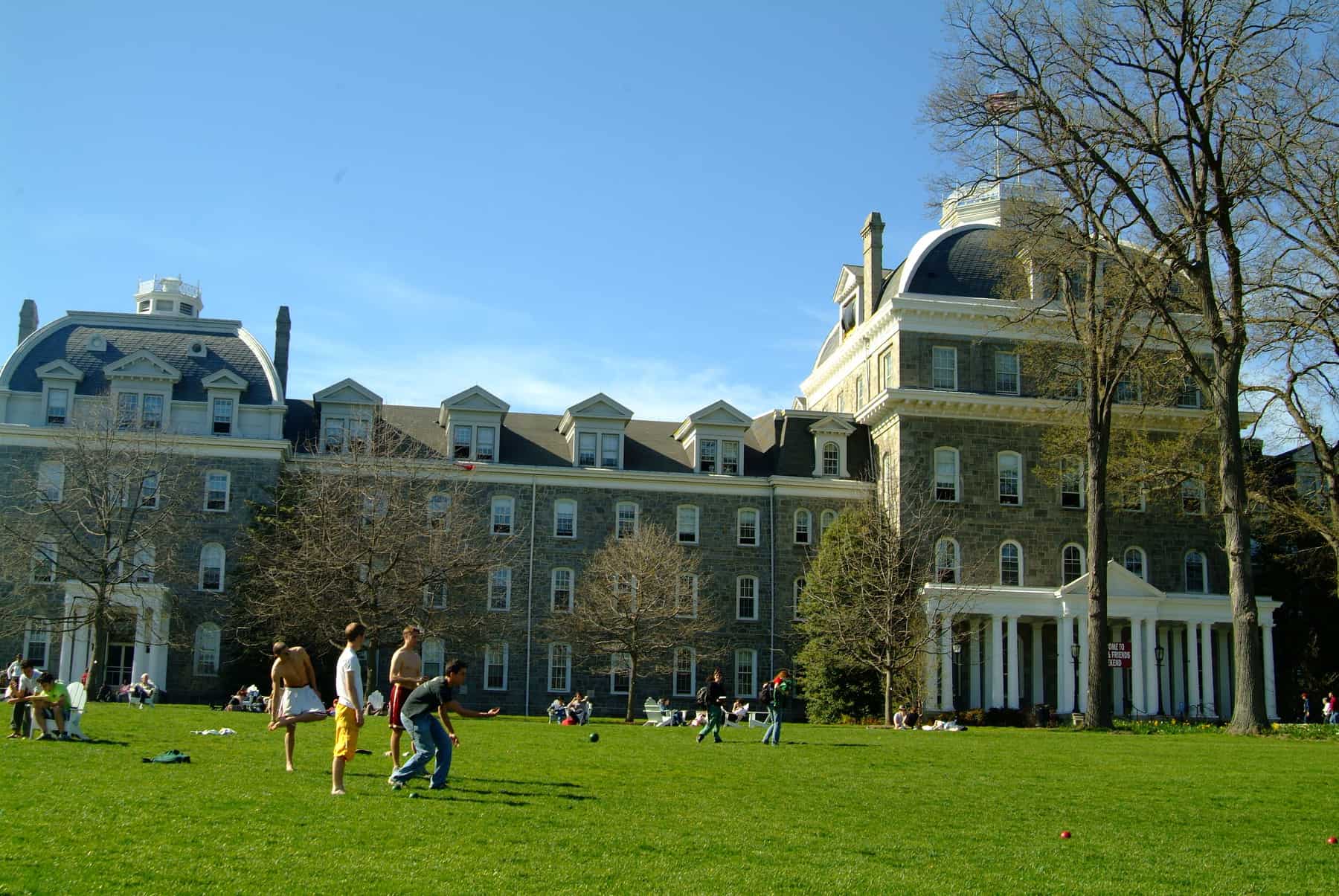
It’s only natural that many talented students aim for the most selective school that they can gain into. It’s not always a smart idea, however, for applicants to attend the most selective college or university that admits them.
Today I am sharing the observations on this topic from Scott White, the head guidance counselor at Morris High School in New Jersey, the author of a free book on the college admission process, who enjoys a national reputation in the higher-ed world. I liked his post so much that I asked to run it on my college blog.
By Scott White
I went to Swarthmore College (as did my daughter) and it was the right choice for me, except in one major area.
I had a really weak high school chemistry course and was considering pre-med. The chemistry course, as it is in many similar schools, was largely a vehicle to self-select out pre-med students. It started on page 150 of the text book, with the professor saying all of you had this first 150 pages in high school (mine got to page 25). We couldn’t have lab partners and our labs were graded by upper class international students, who were brutal.
I ended up with a W on my transcript when I realized I could never catch up. If I was truly
committed to becoming a doctor, going to a less selective college would have served me better.
My son had much stronger credentials than I did, but knew that he was eligible for a Presidential Scholarship (spelled F-R-E-E) at Rutgers University and would, on each college visit to say Brown or Georgetown, observe that they were lovely places but not lovely enough to balance off going to college for free (I love that kid!).
He is a senior in college now and is constantly being sought out for awards, honors, programs and fellowships, something that would be unlikely if he had gone to a most competitive college.
So here is my top ten list of why students should not always go to the most selective college that will admit you:
1. Merit Money
Lynn O’Shaughnessy at The College Solution discusses how colleges will provide merit money for kids who are strong students for the school, which is generally not a student’s reach school. Even without merit money, as one moves up the selectivity ladder there are higher costs and higher debt.
2. Meeting Professional Goals
In some highly competitive fields, like pre-med, it is often best to go to a school whose need is to make sure that every student who wants to go to med school gets in as opposed to selecting out students before they apply. The experience of being supported rather than being weeded out can change the course of your life.
3. Personal Attention
There is often a greater opportunity to work with professors and develop close mentoring relationships with teachers when you a a big fish in a small pond. It is often easier to get more highly supportive teacher recommendations as well.
4. Scholarships and Fellowships.
Students who are more distinguished in their school will be regularly sought out for awards, honors, fellowships and scholarships.
5. Quality Faculty.
It is really hard to get a college teaching job and you can get outstanding teachers at virtually any college. You are more likely to get teachers who are as focused in teaching undergraduates as they are in their own research at strictly undergraduate schools. You are also are not taught by graduate assistants at strictly undergraduate colleges.
6. Graduate School.
It is much easier to shine coming from a less selective pool of students. Of two identical applicants applying from an extremely selective college and from one considerably less selective, the latter will have the advantage in admissions. This person is likely to have greater faculty support, more leadership opportunities and better grades.
7. Licensing.
Many of the extremely selective schools do not have opportunities to get professional licenses as an undergraduate.
8. Employment.
After your first job, rarely do employers care where you went to undergraduate school. And if you go to graduate school, it is this imprimatur that matters more than undergraduate school. It is also well documented that higher pay is more related to college major than the selectivity of the undergraduate school (see John Boeckenstedt’s High Ed Data Stories blog for a thorough analysis of this).
9. The Community College Option.
This is a very inexpensive way to getting through the first two years of college.
Your diploma from a 4-year college does not say “community college transfer” and two years of successful community college will often open more doors than many students would have have leaving high school.
This is a much better option than enrolling in a 4-year college with the plan of transferring.
10. Graduation:
The number of students who end up not graduating yet accumulating huge debt is staggering. Students need to be honest with themselves as to what they are prepared for emotionally, psychologically and financially. For many students, not straying far from the nest, particularly right out of high school, is more likely to guarantee future success.


I would have expected Swarthmore and the other top LAC’s to be a school that helps their pre-meds. I thought that was part of why the students were paying all that money. What are the schools whose mission is to support every aspiring pre-med?
I agree wholeheartedly. Our older son had the stats for very selective schools, including high SAT and ACT scores, #1 class rank, National Merit Finalist, and great extracurriculars, He was torn between more selective private universities and our big state university. He chose state U with a full ride, one of just a handful of students each year who are offered the school’s most prestigious scholarship. Part of being one of the very top students instead of one among many has meant a mentor who works only with the top scholarship students, an occasional lunch with the chancellor, monthly events with the scholarship group where they attend dinners with visiting professors, and excellent research opportunities. State U accepted IB and AP credits (many selective schools don’t), allowing him to double major in four years. His majors are math/science and he is presenting at a prestigious math conference this fall, which is incredible for an undergrad. He will be applying to doctoral programs shortly and because of the research he has done in both of his majors, his professors tell him he stands a very good chance at some of the very best programs in his field. As of later this year, he should also be published. I don’t think any of this would have happened at a super selective school where he would have been one among many. Another upside is that, due to his full ride, he has not had to be a “starving college student” and will graduate with money in the bank.